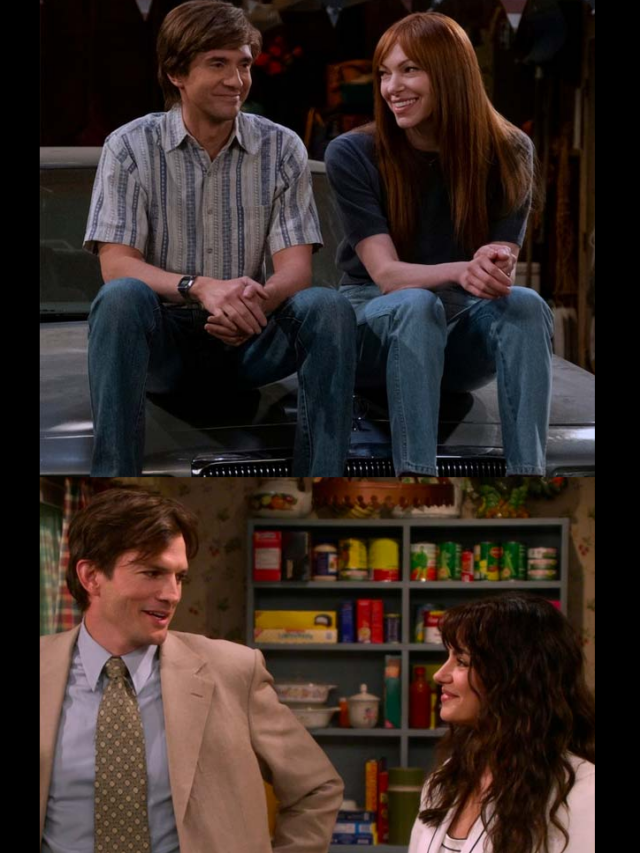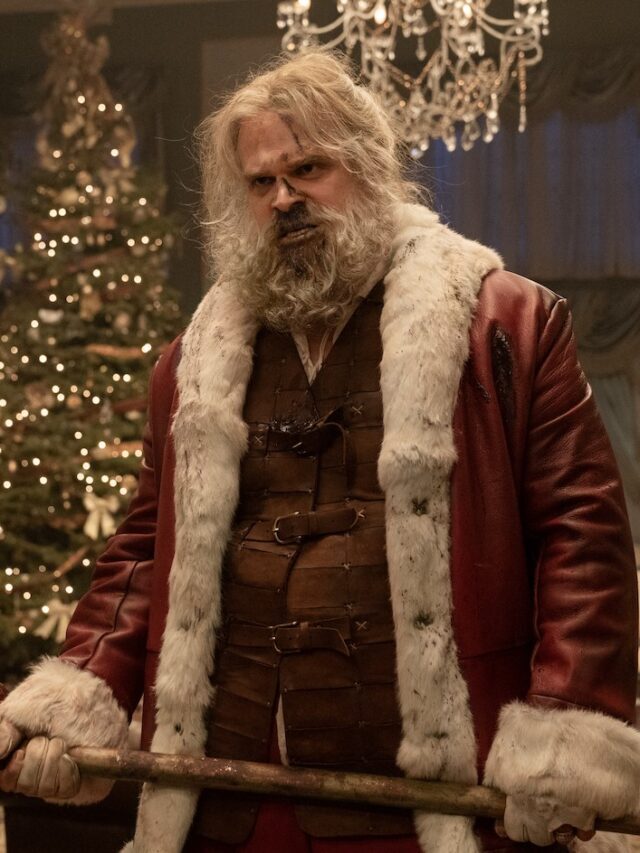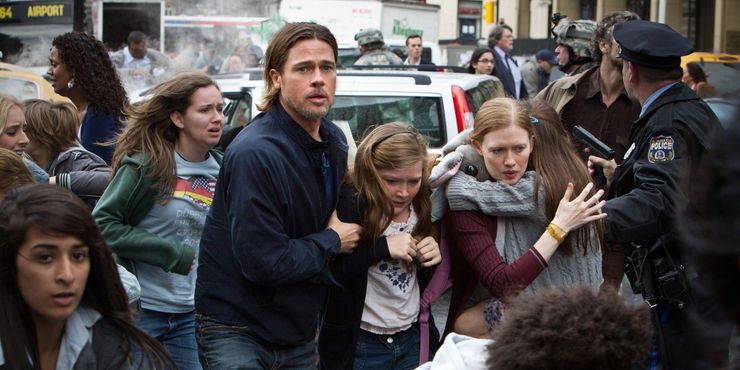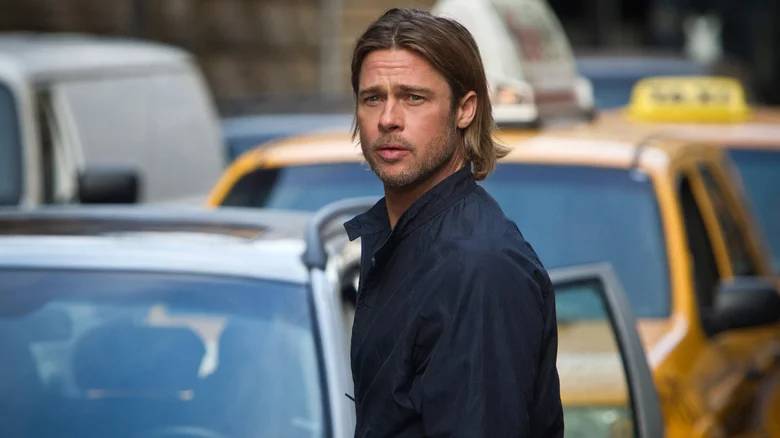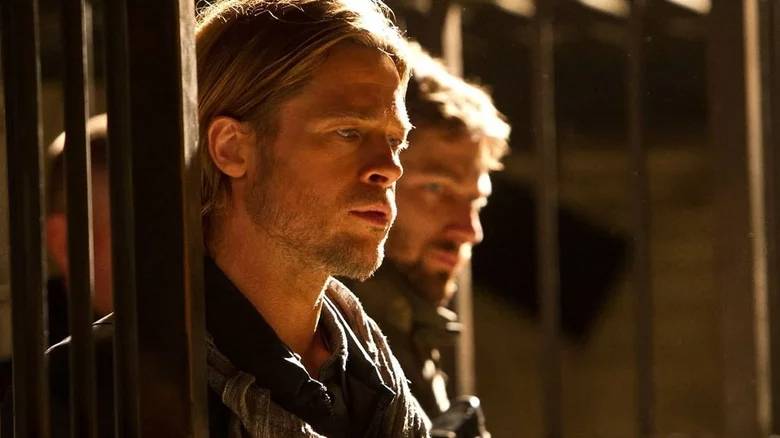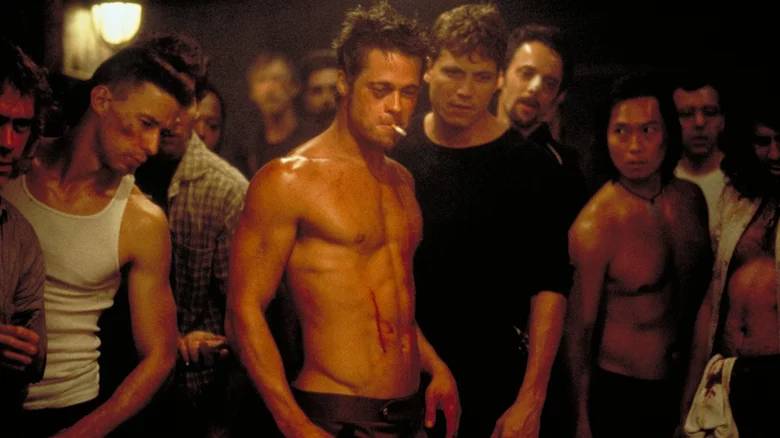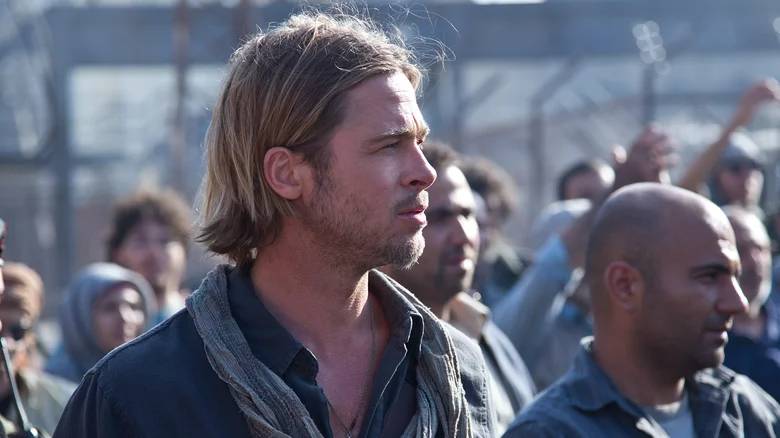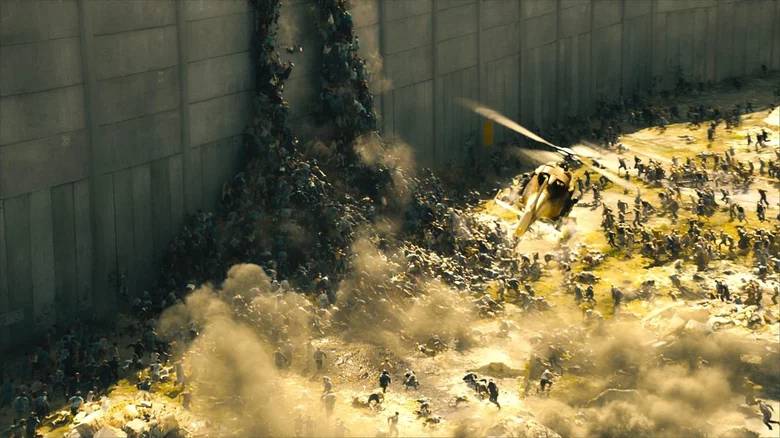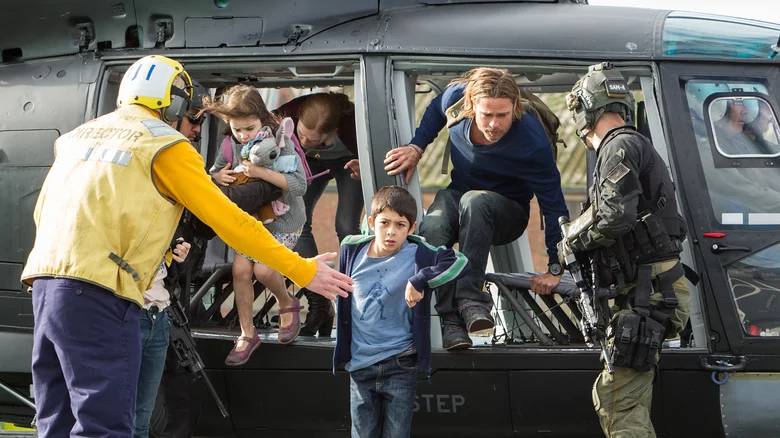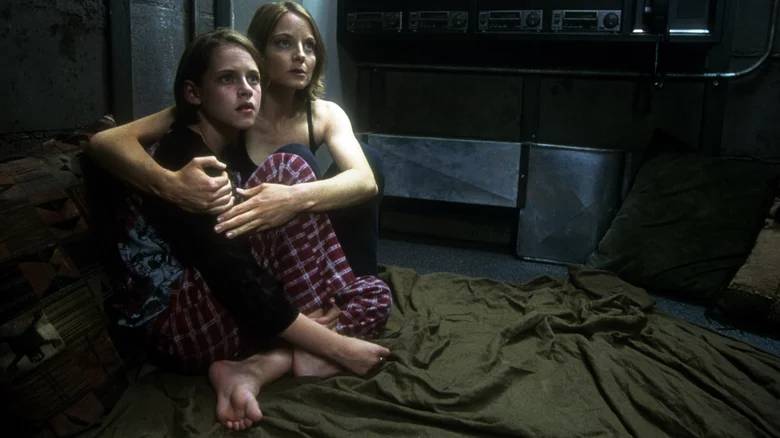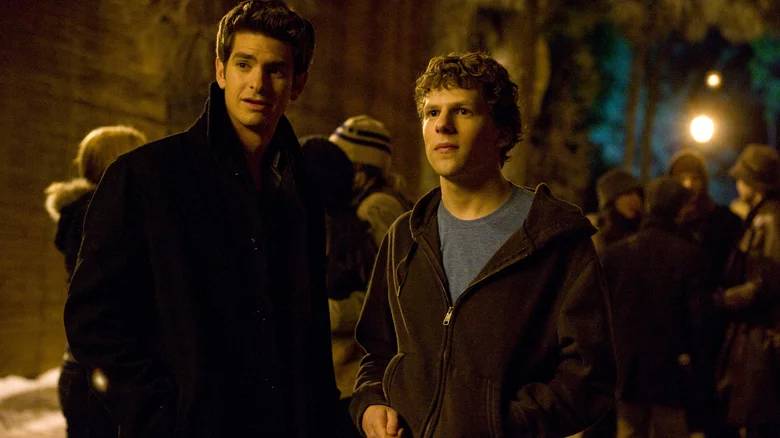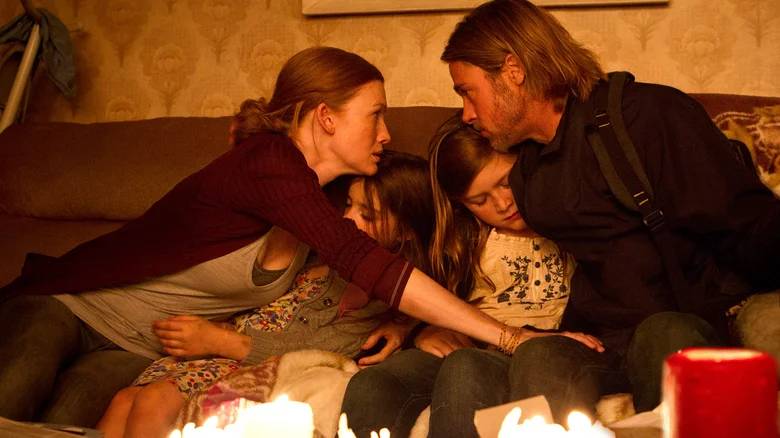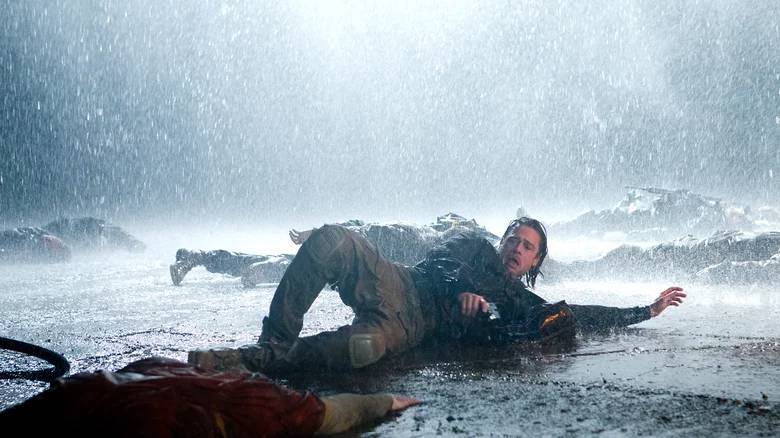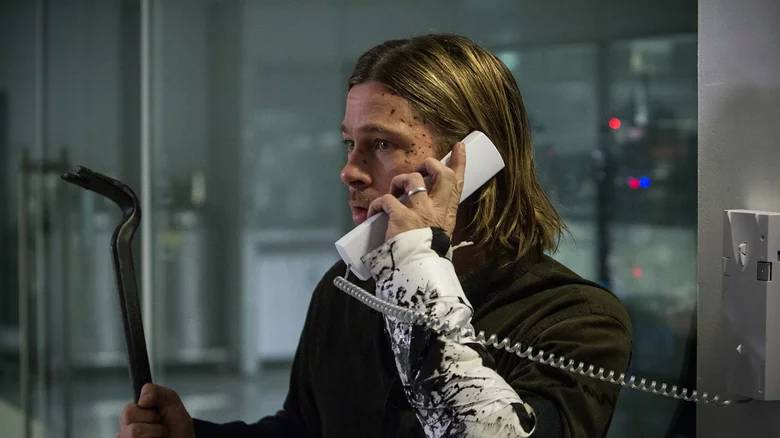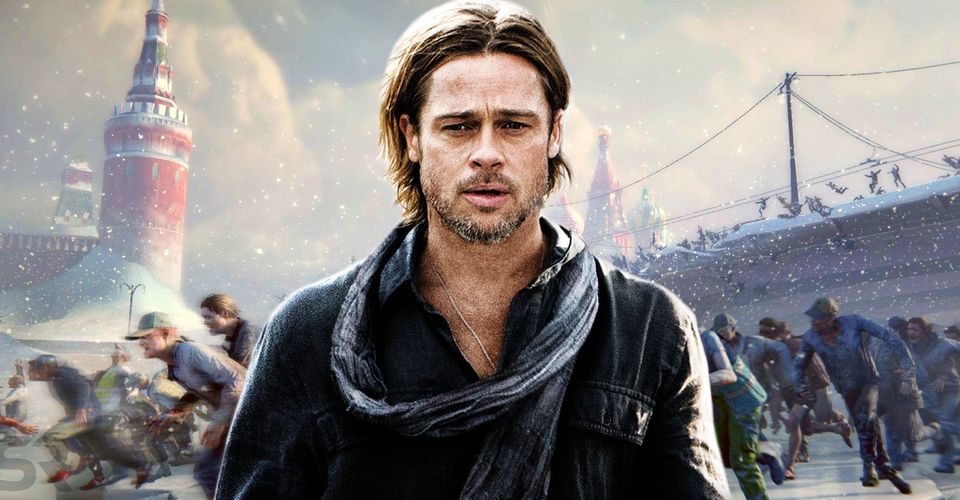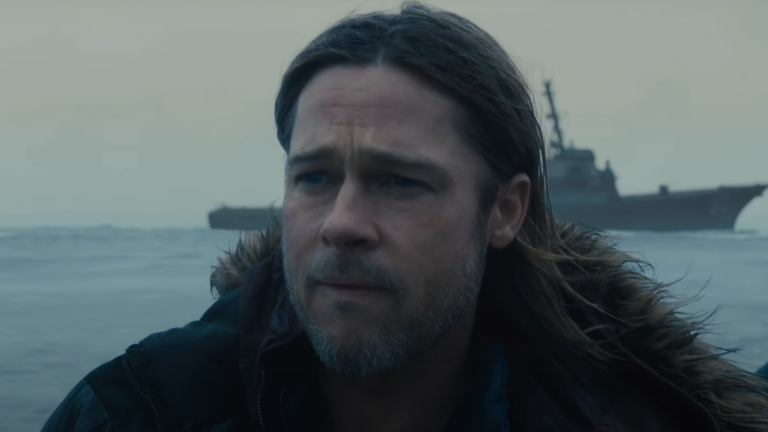The idea of “World War Z” producing sequels was in motion as early as January 2012. Like so many other big-budget blockbusters, this zombie movie starring Brad Pitt was intended to start a long-running series that would delight both audiences and studio executives for years to come. However, some ten years after “World War Z” first debuted in theatres, no follow-up has appeared, and a potential second instalment was cancelled at the beginning of 2019. It wouldn’t always be a huge crime to lose yet another blockbuster sequel, but “World War Z II” wasn’t just any ordinary blockbuster sequel. This would have been David Fincher’s directorial debut, and it is certainly worth lamenting the loss of any unproduced film from him.
There are very little specifics about the plot and action scenes in Fincher’s “World War Z” sequel. However, due to the director’s extensive involvement in the project and important aspects of his creative process, not to mention important components of the first “World War Z,” this unproduced film piques movie buffs’ interest. There are many reasons to be disappointed that Fincher was never given the chance to bring his vision for this “World War Z II” to life, even though we’ll never know whether it would have been as successful as masterpieces like “Zodiac.”
Table Of Content
- 1 A lower-budget World War Z film
- 2 A potential blockbuster for David Fincher
- 3 A potentially iconic marketing campaign
- 4 A reunion with Brad Pitt
- 5 An expanded supporting cast
- 6 An opportunity to adhere more closely to the original novel
- 7 Auteurs and zombies often make a great combo
- 8 David Fincher’s mastery of fun genre entertainment
- 9 David Fincher’s track record
- 10 Passion for the material
- 11 Recurring collaborators
- 12 There’s room for improvement on the original
A lower-budget World War Z film
Even though the first “World War Z” made more than $500 million globally, it wasn’t as successful as it could have been. The production of “World War Z” ended up costing $190 million because of the protracted reshoots. Even though the movie generated enough revenue to kickstart a franchise, financier Paramount Pictures was keen to place tighter budgetary restrictions on subsequent episodes. The Playlist said that Fincher had been intending to produce the movie with a smaller budget than its predecessor when word of “World War Z II’s” collapse first leaked. No specific budgetary amount was provided.
Fincher may have been able to push the boundaries a little bit further than he would have been able to had he been working with the budget for the first “World War Z” Of course, this does not imply that Fincher’s creative potential in this situation was unbounded. There’s no way the director could have gone berserk because the film was still intended to be a PG-13 release that would appeal to audiences around the world. Financial constraints, though, may have given Fincher the opportunity to explore novel, intriguing ideas as a filmmaker. There were undoubtedly alluring concepts buried in the idea of a leaner, less expensive “World War Z” film.
A potential blockbuster for David Fincher
David Fincher’s experiences working on high-profile blockbusters have not been great. He has been extremely candid about how little creative control he had on his first feature-length film, “Alien 3,” but at least it was made. Early in the pre-production of “Mission: Impossible III,” Fincher was fired. Years later, he would take on to direct a remake of “20,000 Leagues Under the Sea” for Walt Disney Pictures in an effort to make another hit. Fincher and the Mouse House’s odd alliance would not last. After disagreements with the studio over the casting, Fincher would ultimately abandon the project.
After all these issues, you’d think Fincher wouldn’t even consider taking on a big-budget blockbuster sequel project, but “World War Z II” did have some tempting aspects on paper, particularly the fact that he’d be working with returning leading man Brad Pitt on this project. In a perfect world, “World War Z II” would have been the first sequel from director David Fincher that was completely his vision. Unfortunately, “World War Z II” would ultimately be shelved, adding to Fincher’s never-ending struggles in the field of blockbuster filmmaking.
A potentially iconic marketing campaign
The anticipation for a David Fincher film may be almost as much fun as the actual viewing. Given how harshly Fincher has attacked the advertising for some of his earliest films, like “Fight Club,” Fincher’s 21st-century flicks have spawned some pretty fantastic marketing. Though those days of a shoddy marketing campaign are long gone, movies like “The Social Network” and “The Girl with the Dragon Tattoo” managed to produce some of the best trailers of the decade. These trailers served as remarkable examples of filmmaking in and of themselves. They were excellent at teasing a forthcoming movie while also succeeding admirably on their own as works of art.
The promotion for the dark thriller “The Girl with the Dragon Tattoo” shows that this tendency wasn’t just limited to contemplative dramas like “The Social Network.” Even if “World War Z II” had a sizable budget, it stood just as much of a chance as any Fincher movie from the twenty-first century to produce a trailer that rivalled that of “Gone Girl.” Even if “World War Z II” turned out to be a disappointment, one would expect that the movie could at least produce a memorable trailer or poster that people would still be talking about years later given the track record of recent Fincher films.
A reunion with Brad Pitt
Most auteurs have a certain movie star with whom they connect more than any other. Toshiro Mifune worked with Akira Kurosawa. John Wayne was in John Ford. Regarding David Fincher, Brad Pitt has not only been the star of some of his most popular films, but has also starred in some of the most highly regarded works in the director’s oeuvre. Se7en, the product of their first collaboration, served as David Fincher’s debut film as a filmmaker, while “Fight Club” rose to cult status. Even “The Curious Case of Benjamin Button,” the first Fincher film to receive a best picture nomination, was produced by the team.
Pitt and Fincher haven’t collaborated on a film since “The Curious Case of Benjamin Button,” so far. With “World War Z II,” which would have seen them reconnect for a substantially larger project, their absence seemed to be nearing to an end. The imagination reels at what Pitt could’ve accomplished under Fincher’s direction, given his growth as a performer since “Benjamin Button,” even with all the CGI zombies wandering around. If Pitt had been a little older but no less appealing, Fincher could have done wonders.
An expanded supporting cast
Although Brad Pitt played the title role in the first “World War Z,” it would be difficult to name any other significant actors who appeared in the movie. That’s more of a result of “World War Z’s” narrative framework and less of a critique of the supporting cast’s acting abilities. Gerry Lane, the lead character in Pitt, embarks on a world tour to research a potential cure for the zombie apocalypse. There isn’t a dependable supporting cast for our hero to lean on. Instead, he simply shifts from one group of perhaps helpful individuals to the next. Supporting actors, with the exception of his wife and daughters, rarely get much screen time.
This coincidental information might have helped Fincher’s “World War Z II” strategy. Fincher was allowed to create his own supporting ensemble for Pitt to engage with because he wasn’t required to reuse a large number of the audience’s favourite supporting actors from the first movie. Even better, thanks to Fincher’s films’ consistently excellent casting, some incredible actors would have been able to play these new characters in the “World War Z” universe. A minor flaw in “World War Z” was the absence of standout supporting characters. But that might have opened up some fascinating ideas for “World War Z II.”
An opportunity to adhere more closely to the original novel
The original “World War Z” received a lot of criticism for how it abandoned its source material. Granted, it would have been challenging to adapt this first book by Max Brooks into a feature picture because it had a variety of experiences about the zombie apocalypse from throughout the world. This book is notable for taking place after a protracted conflict with zombies, with these stories reflecting the events of that conflict. By having Brad Pitt experience the zombie outbreak as it occurs and creating a plot with a single protagonist, the “World War Z” film deviated from this.
Given how successful “World War Z” was, it’s unlikely that Paramount Pictures wanted Fincher to remove all elements of the first “Z” film that upset fans of the original material. However, there were a number of ways “World War Z II” may have appeased some of those people, including incorporating some of the novel’s stories into the sequel’s narrative. “World War Z II” has the potential to allay fan concerns about the first movie while still producing an entertaining blockbuster for the wider public. Of course, this exciting chance was lost when “World War Z II” failed at the beginning of 2019.
Auteurs and zombies often make a great combo
You don’t have to have zombies in your film for it to be good. However, it never hurts to have the dead around in your movie, especially if it’s a beloved auteur is directing it. Working with the undead has often allowed great filmmakers to bloom. Simply observe Danny Boyle. Boyle had already made a name for himself as a renowned director with “Trainspotting,” but his take on zombies in “28 Days Later” catapulted him to a whole new level of fame. Yeon Sang-ho, a director, elevated “Train to Busan” to greater prominence on the world stage. Even Edgar Wright’s silly comedy “Shaun of the Dead” managed to surpass the inventiveness of many serious zombie movies.
Once more, a zombie won’t automatically elevate your film to legendary status. However, zombies have a lot of potential for everything from scaring people to creating a sombre atmosphere that depends on the realisation that we are all mortal. It would have been fascinating to see what a director with the audacity of David Fincher could have done with the zombie genre’s inherent potential in a “World War Z” sequel. It’s likely that he would have emulated Boyle, Sang-ho, and Wright, among many others, in demonstrating the compatibility of zombies and auteurs.
David Fincher’s mastery of fun genre entertainment
Even if David Fincher’s most recent films have made him a favourite during award season, he doesn’t make movies that mistake rigidity for profundity. Fincher’s best efforts are occasionally hilariously ludicrous. “Gone Girl” has a lot on its mind, but it’s also loaded with gore and sexy surprises. The Game and Panic Room, two of his earlier efforts, were among the best pure popcorn thrillers ever made. Fincher may have had many nominations for the best director Oscar, but he also tends to make films where Jared Leto is set ablaze.
Fincher doesn’t hesitate to produce enjoyable genre entertainment without sacrificing the calibre of his movies. A sequel to “World War Z” could have been the ideal vehicle for that concoction. Fincher had the opportunity to give this zombie film actual brains while also delivering the kind of bloody mayhem that moviegoers pay good money to see on the big screen. In Fincher’s career, balancing intricate camerawork, narrative, and tonnes of outrageous genre fun has been a recurring theme. The movie industry is worse off for not getting to see what he could’ve accomplished with the chance to use that proclivity on a blockbuster tracing a global zombie apocalypse.
David Fincher’s track record
The loss of a new David Fincher film is, of course, the biggest loss with the projected “World War Z” sequel. Fincher, one of the great American cinematic finds of the 1990s, has been a consistently outstanding director for many years. His films have titles like “The Social Network” and “Zodiac” that have become modern classics for a reason, and the fast-moving pace of his work makes it impossible to take your eyes away from them. In movies like “Gone Girl,” he makes daring tonal and visual shifts that are admirable even if the finished products aren’t great. Even mediocre films like “The Curious Case of Benjamin Button” or “Mank” have some interesting visuals and performances that spectators can take in.
Every new Fincher movie is a big deal. Including “World War Z II,” which would have served as a significant franchise exercise for Paramount Pictures. Even under these constraints, the potential Fincher had is mind-boggling, particularly if he had put more effort into making the zombies in this realm seem actually terrible rather than like a CG swarm. Many large blockbuster sequels never get made, but it’s especially terrible when it’s a project like “World War Z II” that was meant to be directed by a director of David Fincher’s ability.
Passion for the material
The type of movie one typically connects with being a “passion project” is not a “World War Z” sequel. Although “World War Z II” wasn’t exactly that for David Fincher, it is obvious that the filmmaker had a strong commitment to this movie. Fincher’s most significant remarks on “World War Z II” were made more than a year after he was first involved with the project in August 2016. The director said he was working on the follow-up but would not start filming until the script was as strong as it could be.
It probably would have been sufficient to simply display a poster for a subsequent Brad Pitt-starring “World War Z” movie to draw some moviegoers to theatres. Fincher, though, wasn’t looking to go the simple path. Even as one of the primary creative contributors to the Netflix series “Mindhunter,” he continued to work on the movie. Fincher had been associated with “World War Z II” for about three years at the time production was cancelled in February 2019. A project won’t hold the attention of a filmmaker of David Fincher’s quality for that long unless it really captures their imagination. It’s a shame that “World War Z II” will never be revealed to the world for what it was that sparked such fervour.
Recurring collaborators
The craft of filmmaking is a communal one, and David Fincher’s films are no exception. He has been assisted by dependable team members who have contributed greatly to his projects during the course of his filmography. For Fincher’s movies, Darius Khondji and Jeff Croneweth have been the preferred cinematographers. Trent Reznor and Atticus Ross have been Fincher’s films’ go-to composers ever since “The Social Network.” Even in the edit room, where Kirk Baxter and Angus Wall frequently collaborate on the director’s projects, there are well-known artists to be found.
The production of “World War Z II” never advanced enough to recruit key staff members, such as cinematographers and editors, let alone publicise the appearance of people like Khondji or Reznor and Ross. Fincher probably wouldn’t have abandoned those who had played such important roles in his creative process, though. Any film would have benefited from the precise editing of Baxter or the powerful visual of Croneweth’s cinematography. However, a big-budget “World War Z” sequel would have embraced those elements in particular. Losing “World War Z II” meant that audiences will not only miss out on a new Fincher film but also on fresh work from vital production crew members.
There’s room for improvement on the original
The first “World War Z” isn’t that bad, especially after all the pre-release fuss about how difficult it was to perfect the third act. Brad Pitt makes for an appealing everyman in the middle of the zombie mayhem despite his unfathomably good looks. While “World War Z” returns to the earlier days of zombie cinema to build something smaller-scale that focuses on tension rather than massive explosions, the final thirty minutes (the section of the tale that was so difficult to crack) are the movie’s high point. These kinds of scenes elevate “World War Z” to the status of a passable blockbuster, yet egregious overuse of CGI and forgettable supporting actors are only a couple of its other flaws that prevent it from reaching its full potential.
It was not necessary for David Fincher’s concept for a “World War Z” sequel to be a flawless or even merely flawlessly entertaining summer blockbuster. Instead, it would be the follow-up to a movie that had a few notable moments but also had potential for development. Fincher would have been able to focus on executing his original vision without having to worry about measuring up to a sacred predecessor, as he would have had to if he were working on a sequel to “The Matrix” or “Mad Max: Fury Road.” Additionally, the positive aspects of the first “World War Z” could demonstrate to Fincher the possibility of this world of widespread zombie mayhem.
Being a binge-watcher himself, finding Content to write about comes naturally to Divesh. From Anime to Trending Netflix Series and Celebrity News, he covers every detail and always find the right sources for his research.

